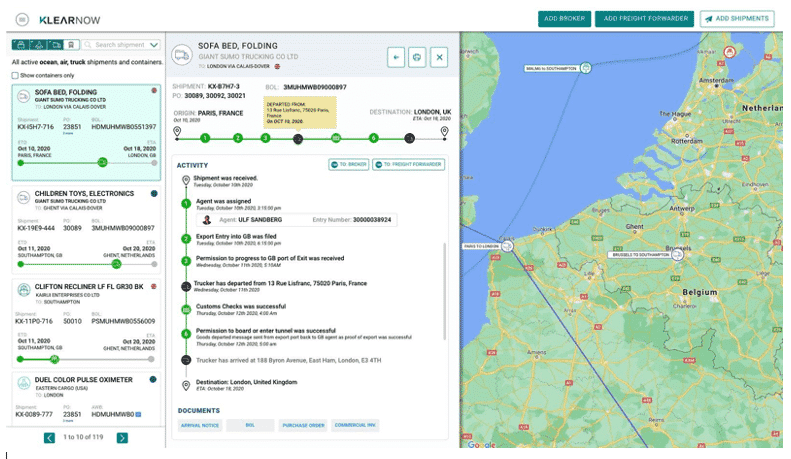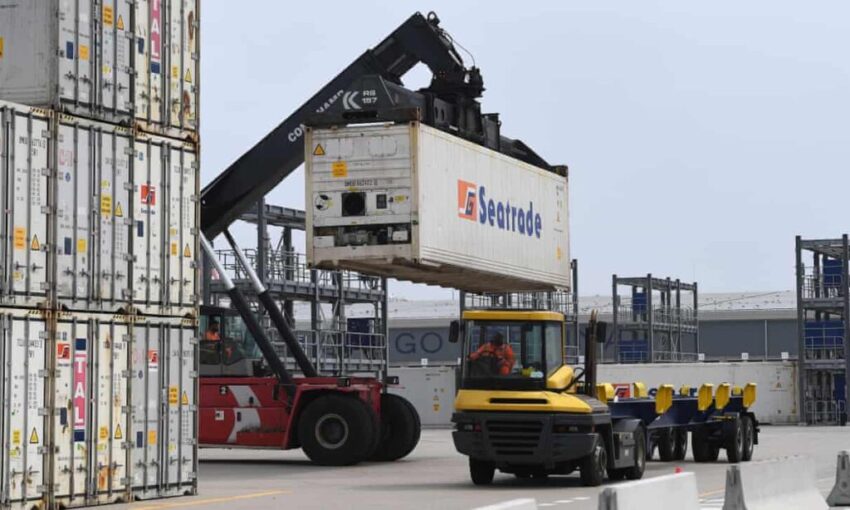The COVID-19 impact on global supply chains has meant that UK businesses could be forgiven for taking their eyes off the rapidly approaching hardball that is Brexit. Come January 2021, they’ll no longer have that option.
You can ignore Brexit, but you can’t ignore the consequences of ignoring Brexit.
And despite the UK government’s bluff and bluster, many businesses will be negatively affected simply by sheer weight of extra paperwork. Lord Agnew, one of the ministers responsible for Brexit preparedness said UK businesses still had their heads in the sand.
Who could blame them? The logistical landscape of the post-Brexit UK looks grim and they’ve had other, more pressing worries to contend with.
But the reality remains. UK customs processes are going to become trickier. And they weren’t in great shape to start with.
“UK customs clearance processes are already outdated, slow and opaque. Many consumers don’t actually realise that a significant portion of customs entries are processed by manual data entry” laments Sam Tyagi, founder and CEO of digital customs clearance platform, KlearNow.
Tyagi’s concerns come at a time when supply chain inefficiencies are in the spotlight; as well as Brexit, the recently approved Pfizer/BioNTech vaccine is another topic to have sharpened consumer awareness of how goods get into and out of the UK.
“While other essential supply chain processes have adapted and modernised, customs clearance has been slow to keep up. ‘Yesterday’s technology, tomorrow’ appears to be the motto.
“Brexit will compound this problem and make it harder and more expensive to clear goods at UK borders” warns Tyagi.
51-year-old Tyagi is originally from India and based in Santa Clara, California – at the heart of Silicon Valley – but for the past few years his mind has been firmly focused on less glamorous places like Dover, Felixstowe and Southampton and, more specifically, the customs processes currently in operation there.
KlearNow, founded in 2018, is the world’s first AI-driven, 100% digital customs clearance platform. Its mission is clear; to make global logistics simple and cost-effective.
As a customs clearance and document management platform built for importers, exporters, customs agents, brokers, freight forwarders and hauliers, KlearNow’s January 2021 launch could not have been timed better.
It’s already proving popular in the United States and Canada, but in those territories it’s very much seen as a business process improvement solution; a path to efficiency and cost reduction.
In a post-Brexit UK, it could be an absolute lifeline for businesses who import and export and for overworked logistics workers.

As well its California HQ and site in Toronto, KlearNow has locations in Manchester, Madrid, and Rotterdam. It’s people are well placed geographically to understand the nuances and intricacies of post-Brexit trade.
In May 2020, the company raised $16 million in series A funding. On reporting the funding raise, tech website Techcrunch noted, in the context of COVID-19, the timeliness of a platform that gives workers in the import/export ecosystem access and visibility of the customs process without having to go into their office to print off reams of declarations and manually enter data. It can be done from anywhere, and more efficiently.
The need for remote access and work-from-home capabilities is the global commerce standard. Yet today’s customs clearance processes are still predominantly manual. The results are error-prone, leading to increased importer costs and supply chain delays.
When thinking about Brexit, this is obviously bad for UK businesses. When thinking about things like health, it’s potentially catastrophic.
“With the announcement that the UK has become the first country to approve the Pfizer/BioNTech vaccine and that it plans to have it ready for use next week, it’s understandable that many are now asking if this is actually feasible and how Brexit will affect the UK’s ability to rapidly import essential goods such as medicines in the near future’ explains Tyagi.
“The logistics industry as a whole has been urging the UK government to modernise and digitise its import processes to mitigate the inevitable delays caused by the UK’s exit from the European Union.”
It’s abundantly clear to Tyagi from his vantage point in California, and it’s abundantly clear to a significant slice of the UK business community, that whatever deal UK negotiators do or do not strike with their EU counterparts, the existing, inefficient customs processes are going to cause pain and cost money.
A solution that smoothes out that friction while providing visibility and opportunities for manpower and cost reduction would be welcome at any time. But given the many contours and sharp edges of doing global business after January 1st 2021, platforms like KlearNow will become an essential part of the exporter’s toolkit.


